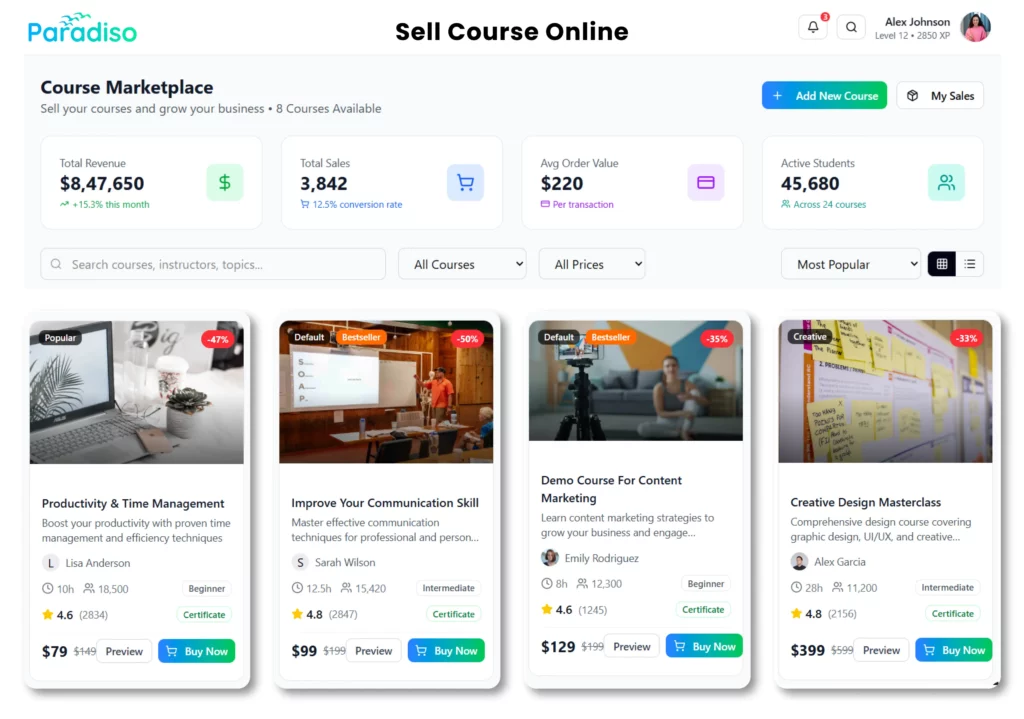In today’s fast-paced, ever-evolving workplace, the role of Learning & Development (L&D) professionals has never been more critical. As organizations strive to stay competitive, the demand for skilled L&D professionals who can design, implement, and evaluate effective training programs is on the rise. But what does it take to excel in this dynamic field? What are the key skills for Learning & Development professionals that can set you apart?
This blog explores the essential skills every L&D professional needs to thrive, offering actionable insights to help you stay ahead in your career. Whether you’re an aspiring L&D specialist or a seasoned professional looking to upskill, this guide will equip you with the knowledge to succeed.
Why Are Key Skills for Learning & Development Professionals Important?
The role of Learning & Development professionals goes beyond simply organizing training sessions. They are strategic partners in driving organizational growth, employee engagement, and performance improvement. With the rise of remote work, digital transformation, and AI-powered tools, L&D professionals must adapt and develop a diverse skill set to meet modern workplace demands.
By mastering the key skills for Learning & Development, you can create impactful learning experiences, foster a culture of continuous improvement, and contribute to your organization’s long-term success.
What Are the Key Skills for Learning & Development Professionals?
1. Instructional Design Expertise
Instructional design is the backbone of effective learning programs. L&D professionals must be adept at creating engaging, learner-centric content that aligns with organizational goals. This includes:
- Conducting needs assessments to identify skill gaps.
- Designing curricula that cater to diverse learning styles.
- Leveraging e-learning tools and platforms for scalable training solutions.
Pro Tip: Familiarize yourself with popular instructional design models like ADDIE (Analyze, Design, Develop, Implement, Evaluate) to structure your programs effectively.
2. Data Analysis and Metrics Evaluation
In the age of data-driven decision-making, L&D professionals must be proficient in analyzing training outcomes. Key metrics to track include:
- Employee engagement rates.
- Knowledge retention levels.
- ROI of training programs.
By interpreting data, you can refine your strategies and demonstrate the value of L&D initiatives to stakeholders.
3. Communication and Interpersonal Skills
Effective communication is at the heart of every successful L&D professional. Whether you’re delivering a workshop or collaborating with department heads, you need to:
- Clearly articulate learning objectives.
- Actively listen to employee feedback.
- Build strong relationships across the organization.
Strong skills for Learning & Development include the ability to tailor your communication style to different audiences, from executives to frontline employees.
4. Technological Proficiency
With the rise of AI, VR, and gamification in training, L&D professionals must stay updated on the latest tech trends. Key tools to master include:
- Learning Management Systems (LMS).
- Authoring tools like CogniSpark AI .
- AI-powered platforms for personalized learning experiences.
5. Change Management Skills
Organizations are constantly evolving, and L&D professionals play a pivotal role in managing change. This involves:
- Preparing employees for new processes or technologies.
- Addressing resistance to change through targeted training.
- Aligning L&D initiatives with organizational transformation goals.
6. Emotional Intelligence (EQ)
High EQ is a game-changer for L&D professionals. It enables you to:
- Understand and address the emotional needs of learners.
- Foster a supportive learning environment.
- Navigate conflicts and challenges with empathy.
7. Project Management Abilities
L&D initiatives often involve multiple stakeholders, tight deadlines, and limited resources. Strong project management skills ensure that you can:
- Plan and execute training programs efficiently.
- Allocate resources effectively.
- Monitor progress and adjust plans as needed.
8. Cultural Competence and Inclusivity
In today’s globalized workforce, L&D professionals must design programs that respect and celebrate diversity. This includes:
- Incorporating inclusive language and examples.
- Addressing unconscious bias in training materials.
- Tailoring programs to meet the needs of a multicultural audience.
How Can Learning & Development Professionals Stay Relevant?
The L&D landscape is constantly evolving, and professionals must commit to lifelong learning. Here are some ways to stay ahead:
- Attend industry conferences and webinars.
- Join professional networks like ATD (Association for Talent Development).
- Pursue certifications like CPLP (Certified Professional in Learning and Performance).
Real-World Applications of LMS with ChatGPT
Key Takeaways
- Instructional design is the foundation of effective L&D programs.
- Data analysis helps refine strategies and demonstrate ROI.
- Technological proficiency is essential in the digital age.
- Emotional intelligence fosters a supportive learning environment.
- Continuous learning is key to staying relevant in the L&D field.
Conclusion
Ready to take your L&D career to the next level? Start by mastering these key skills for Learning & Development professionals today. Explore our recommended resources, join professional networks, and invest in your growth. The future of work is here—be the change your organization needs!
By focusing on these skills for Learning & Development, you’ll not only enhance your career but also drive meaningful impact within your organization. Let’s shape the future of learning together!














